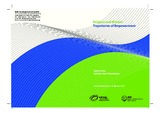| dc.contributor.author | Huq, Samia | |
| dc.contributor.author | Khondaker, Sahida Islam | |
| dc.date.accessioned | 2011-12-11T06:24:19Z | |
| dc.date.available | 2011-12-11T06:24:19Z | |
| dc.date.copyright | 2011 | |
| dc.date.issued | 2011-06 | |
| dc.identifier.issn | 22230114 | |
| dc.identifier.uri | http://hdl.handle.net/10361/1530 | |
| dc.description.abstract | The report is based on a two‐year research project in which we looked at
women’s everyday engagement with religion. We aimed to gain insights into how
women conceptualize religion, the norms and concepts through which they
understand what it means to be religious and the manner in which these
concepts and ideals are brought to bear on the construction of the feminine self.
The research focused on three arenas of women’s understanding of themselves
as women and Muslim. These arenas are purdah, sexuality ‐ by which we mean
male female relations ‐ and freedom and rights. From the research findings we
argue that women have moved towards a textually‐based learning and
interpretation of Islam, as opposed to engaging with Islam as a form of
knowledge passed down from earlier generations. We also found that, in line with
the need to “authenticate” beliefs, women express much respect for taleem ‐
spaces where women congregate to learn about the Quran and other exegetical
material as well as ideal Islamic comportment. From the findings we argue that
the role of religion in women’s lives cannot be understood through the binary of
religious/conservative versus secular/liberal. Rather, by exploring the norms
through which women understand religion and deploy corporeal as well as noncorporeal
capacities to engage with those norms in “living” Islam we can shed
light on greater nuances that under gird religious engagement. We then turn our
attention to the negotiations theses nuances represent and how they open up
questions about the “contentious” relationship between women, religion, agency
and empowerment. | en_US |
| dc.description.statementofresponsibility | Samia Huq | |
| dc.description.statementofresponsibility | Sahida Islam Khondaker | |
| dc.format.extent | 38 pages | |
| dc.publisher | BRAC University | en_US |
| dc.relation.ispartofseries | Working Paper No. 02 | |
| dc.subject | Religion | en_US |
| dc.subject | Sexuality | en_US |
| dc.subject | Empowerment | en_US |
| dc.subject | Taleem | en_US |
| dc.subject | Textual religion | en_US |
| dc.subject | Agency | en_US |
| dc.subject | Purdah | en_US |
| dc.subject | Faith/Imaan | en_US |
| dc.subject | Polygyny | en_US |
| dc.subject | Rights | en_US |
| dc.subject | Freedom | en_US |
| dc.title | Religion and muslim women: trajectories of empowerment | en_US |
| dc.type | Working paper | en_US |
| dc.contributor.department | BRAC Development Institute (BDI), BRAC University | |

